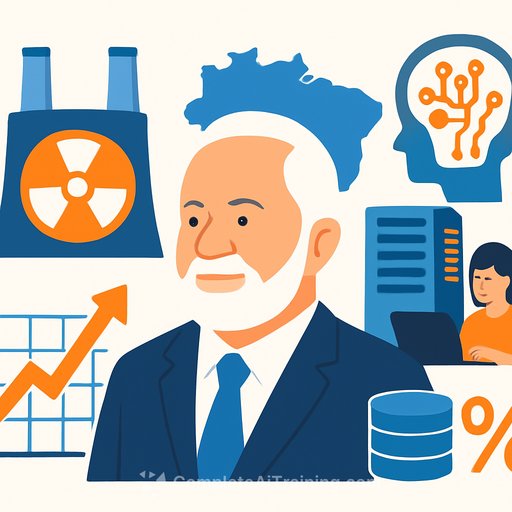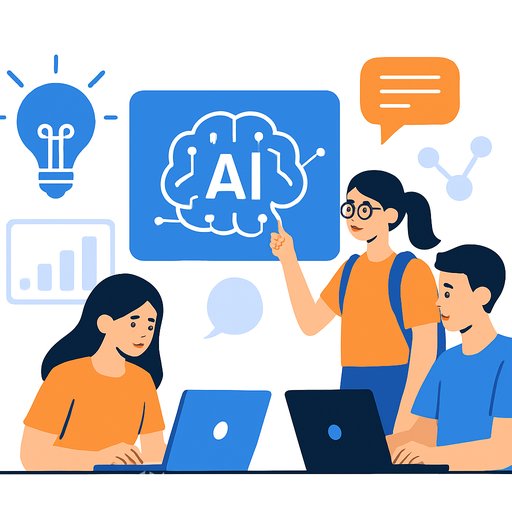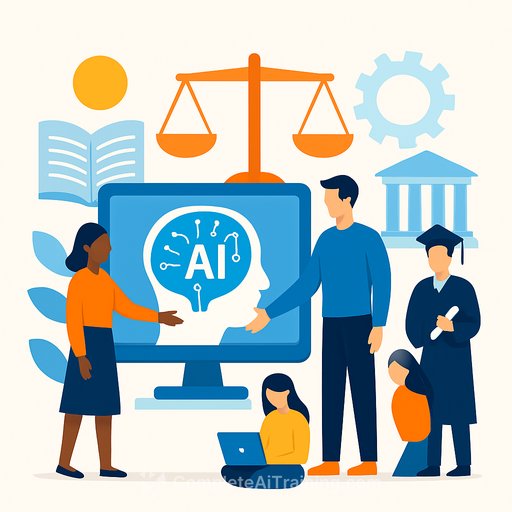A Qualitative Study on Ethical Issues in AI-Driven Foreign Language Learning
The rise of AI-driven technologies in education has brought many benefits, especially in foreign language learning. But what about the ethical challenges these tools pose? This study explores the risks and concerns users face, focusing on students experienced with AI in language learning contexts.
Overview of the Study
The research involved nearly 100 students from computer science and related fields at the University of Hradec Kralove. These students regularly use AI-powered language apps like Replika and DeepL as part of their coursework. Through a qualitative questionnaire and advanced text analysis software, the study examined their feelings, experiences, and awareness of ethical issues.
Key Findings
- Awareness of Threats: Most respondents felt relatively safe using AI apps but were wary of data theft and privacy breaches. Their background in ICT made them more cautious and less vulnerable compared to general users.
- Privacy Concerns: Data misuse, phishing, and unauthorized voice recording were frequently mentioned risks. Participants pointed out that some apps, like Replika, can feel intrusive or "stalking."
- Data Sharing Behavior: About 42% admitted to being honest with AI tools, while around 21% were not, and the rest varied depending on the situation. Careful management of personal data was common among the group.
- Experiences of Ethical Issues: Some users reported feeling harassed or uncomfortable, including instances where chatbots behaved inappropriately. Many expressed unease about being constantly monitored without clear knowledge or consent.
- Impact on Well-being: The overall tone about AI's impact on well-being was positive. Participants acknowledged AI's benefits in language learning and daily life but noted increased screen time as a downside.
Discussion
AI-driven apps can effectively support language learning by improving speaking and writing skills. However, students remain skeptical about transparency and data safety. The so-called "black box" nature of AI algorithms often leaves users uncertain about how their data is processed or shared.
Research shows that trust in AI systems depends heavily on users’ perceived control over their data and the technology’s transparency. In this study, ICT students felt more confident managing these risks, but also recognized that less tech-savvy users might be more vulnerable.
Ethical guidelines in AI education tools need to address:
- Privacy protection and data security
- Transparency about AI processes
- Preventing misuse, harassment, or unethical behavior
- Empowering users with knowledge and control
Teachers and developers should combine technical, pedagogical, and ethical skills to create safer AI learning environments. Developing AI literacy among both educators and learners is essential to mitigate risks and maximize benefits.
Conclusion
This study highlights important ethical concerns in AI-driven foreign language learning apps, focusing on privacy, trust, and user safety. While AI offers clear advantages, these must be balanced with responsible design and user awareness.
For educators and researchers interested in AI applications in education, exploring these ethical dimensions is crucial. Practical steps include implementing clear usage guidelines, enhancing transparency, and promoting digital literacy for all users.
To explore courses and training on AI ethics and educational technologies, visit Complete AI Training.
Your membership also unlocks:










